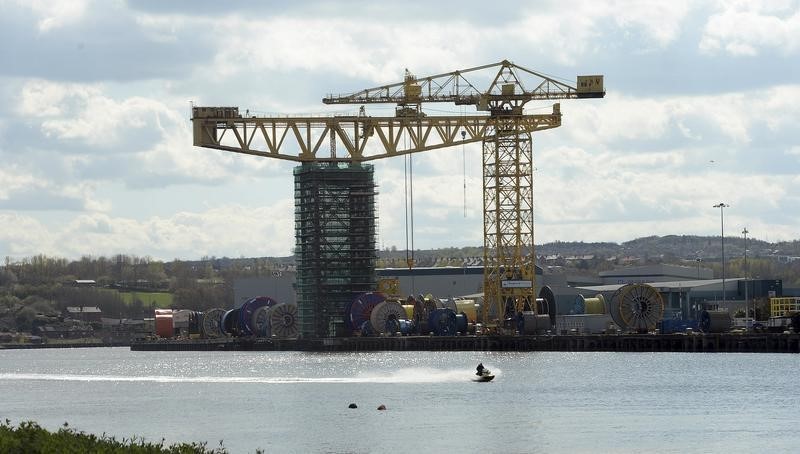LONDON (Reuters) - British manufacturing growth slowed unexpectedly to its weakest rate in more than two years in June, dented by subdued export demand from Europe in the face of a strong pound, a closely watched survey showed on Wednesday.
The Markit/CIPS manufacturing purchasing managers' index (PMI) fell to 51.4, the weakest reading since April 2013, from a downwardly revised 51.9 in May.
June's PMI was worse than all forecasts in a Reuters poll that had predicted a slight improvement to 52.5, although it still held above the 50 mark that denotes growth.
The slowdown in manufacturing means Britain's economy will become even more reliant on other sectors, such as services, to drive growth, said data company Markit.
"The UK manufacturing sector had a disappointing second quarter overall," said Rob Dobson, economist at Markit.
"Growth trends in output and new orders were the weakest since the opening quarter of 2013, as a strong sterling exchange rate and subdued demand from mainland Europe offset the continued solidity of the domestic market."
Sterling gained around 2 percent in June alone on a trade-weighted basis <=GBP>, and earlier this week the Bank of England's chief economist warned this was likely to weigh on growth over the next two years.
Dobson said export trade was likely to remain a drag on the economy, after official data on Tuesday showed net trade subtracted some 0.6 percent from economic growth in the first three months of the year.
The official figures also showed manufacturing output rose just 0.1 percent in the first quarter.
More promisingly, the PMI survey reported that manufacturers took on staff at the fastest rate in three months during June, adding to positive trends in Britain's labour market.
"On this score, recent signs of a pick-up in wage growth and low inflation may provide some respite to weather the volatility in trade with our European partners," said Dobson.
Prices paid by manufacturers for raw materials rose for the first time since August last year, although at the factory gate prices slipped after rising in May.

The Bank of England expects inflation to pick up quickly towards the end of this year as last year's plunge in global oil prices works itself out of the numbers.